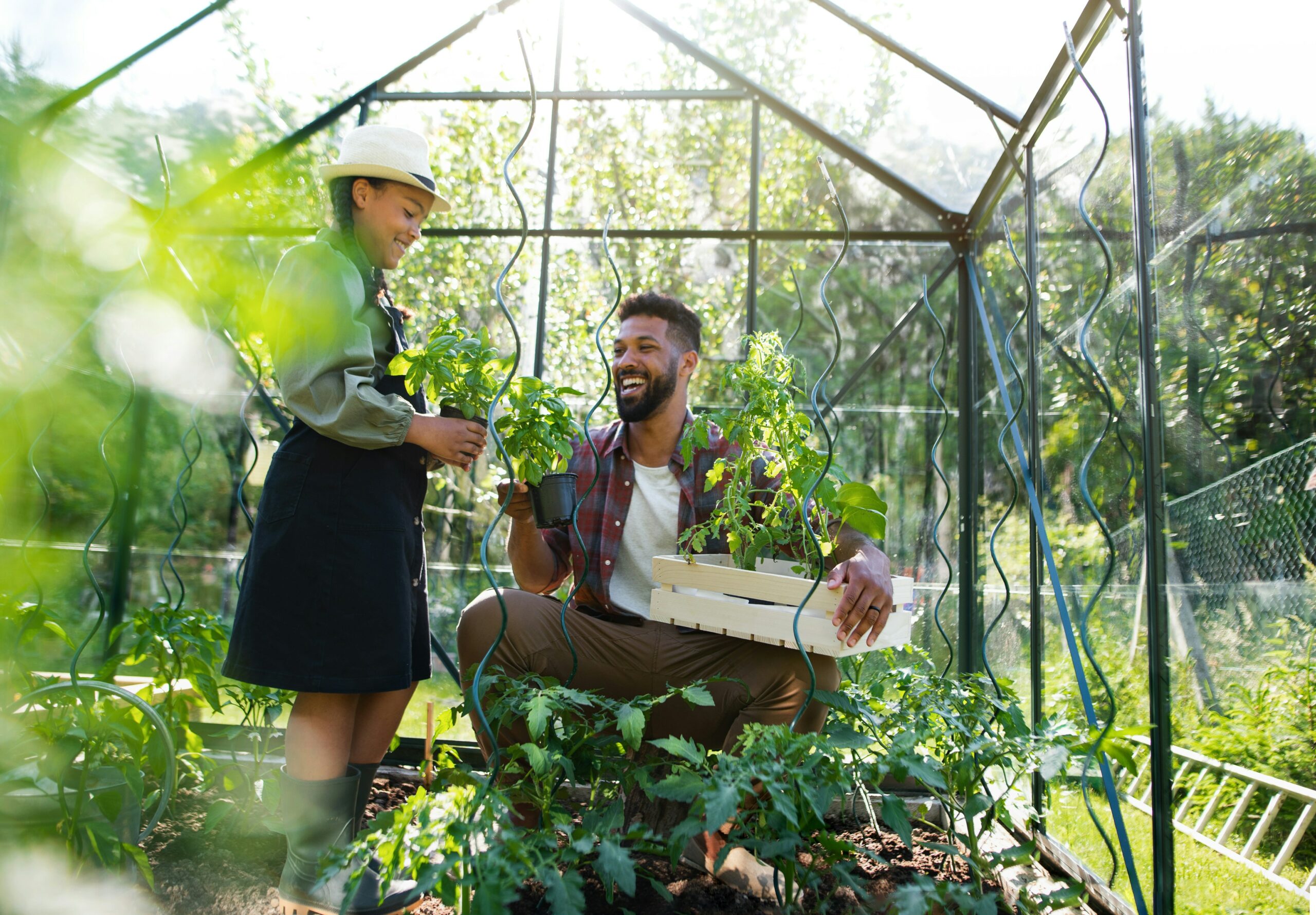Greenhouses are a regular sight here in Britain, be they full-sized and packed with vegetables in the back garden or miniatures on the balcony for tomatoes. If you’re taking on the challenge of building your own greenhouse, or a pane in your greenhouse has unfortunately broken, then you might be looking for greenhouse glass.
In this post, we’re going to discuss all things greenhouse glass and answer your most-asked questions.
What is greenhouse glass?
Greenhouse glass, also known as horticultural glass, is a type of specialised glass used in greenhouse structures, which are most commonly used for growing plants that need sunlight, warmth, and protection from the elements.
Horticultural glass is made with specific qualities that make it ideal for supporting plant growth. It lets in more ultraviolet rays from the sun than normal glass and has better light dispersion. It traps more heat, too, helping plants thrive. When toughened, it’s safer, especially in areas where breakage is a concern. It doesn’t shatter into sharp pieces and can better withstand the classic British elements.
You wouldn’t want to use greenhouse glass in the windows and doors of your home, however. With the amount of light it lets through thanks to its high level of clarity, you may find your possessions getting sun-bleached. It may leave your home far too hot, and it’s also not typically as thick or strong as the standard glass you want in your windows.
Does greenhouse glass have to be toughened?
No, greenhouse glass doesn’t have to be toughened, but it’s a more popular choice than float glass, which is not toughened.
Due to the activities that typically occur inside the structure, toughened greenhouse glass can help prevent accidents. Poking a tomato support pole straight through a glass pane can be a real pain. Not to mention, greenhouses typically sit in gardens, where a host of dangers to greenhouses can be found, such as birds, flying stones, and kicked balls.
If these accidents occur, toughened glass will break into small, granular pieces, which are safer to handle. Float glass, on the other hand, breaks into larger sharp shards. If your greenhouse is out of the way of potential danger, however, then float glass will work just as well as toughened glass at supporting plant growth.
What is the best thickness of glass for a greenhouse?
Glass with a thickness of 3mm or 4mm is typically the most used for greenhouses, but we would recommend using 4mm as it’s slightly more durable.
Our 4mm greenhouse glass is also toughened, making it superior in safety. However, if your greenhouse is far from any accidents that could occur, 3mm float glass is still an ideal glass and thickness for the structure.
Can greenhouse glass be recycled?
Yes, greenhouse glass can be recycled like standard glass. Dispose of it safely in a glass recycling bin or take it to a recycling centre to be taken care of.
Where can I buy greenhouse glass?
You can buy greenhouse glass right here from Norwich Glass Company. We offer pre-cut glass, expertly handled by our in-house glaziers, in various thicknesses and sizes. We have float glass in a 3mm thickness and toughened glass in a 4mm thickness, both perfect for use in your greenhouse.
Get in touch with our team of glass suppliers today to speak to one of our expert glaziers about greenhouse glass. Call us on 01603 431409 or email us at info@norwich-glass.co.uk.
